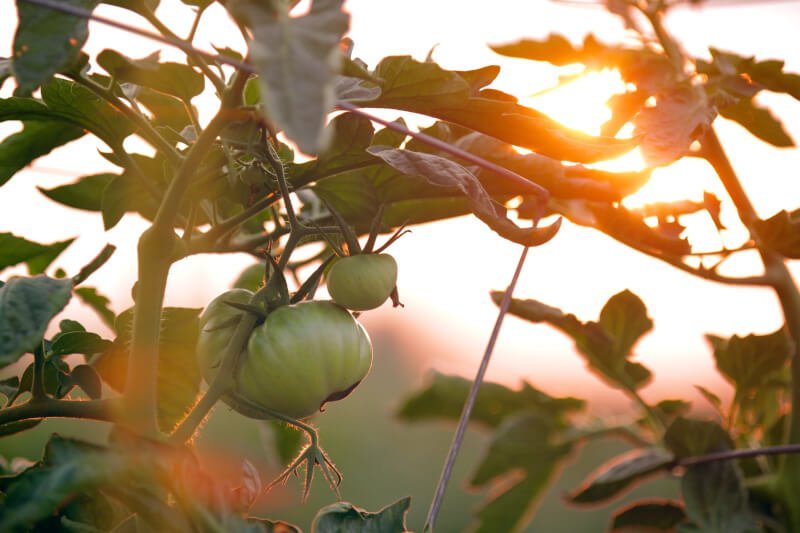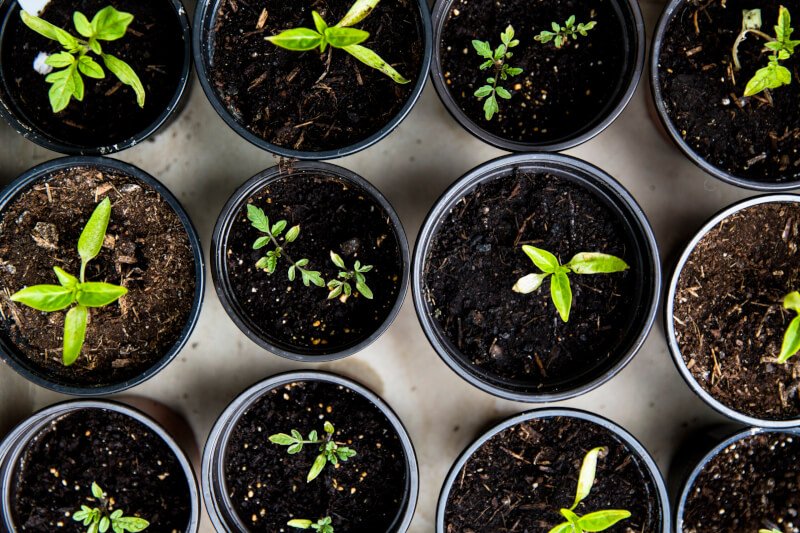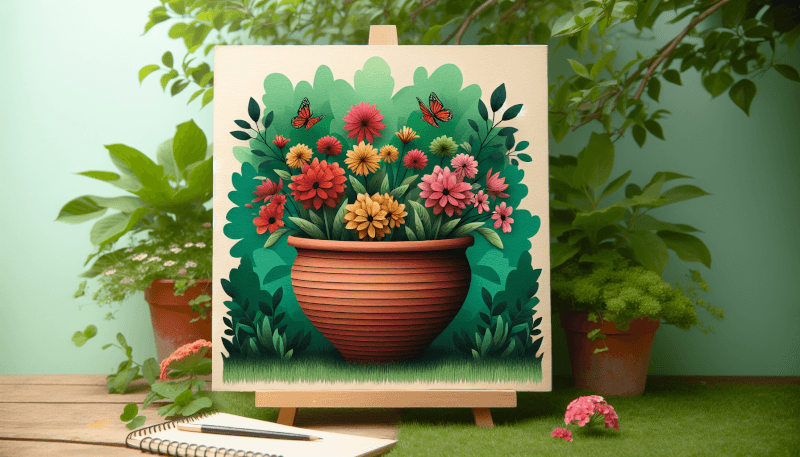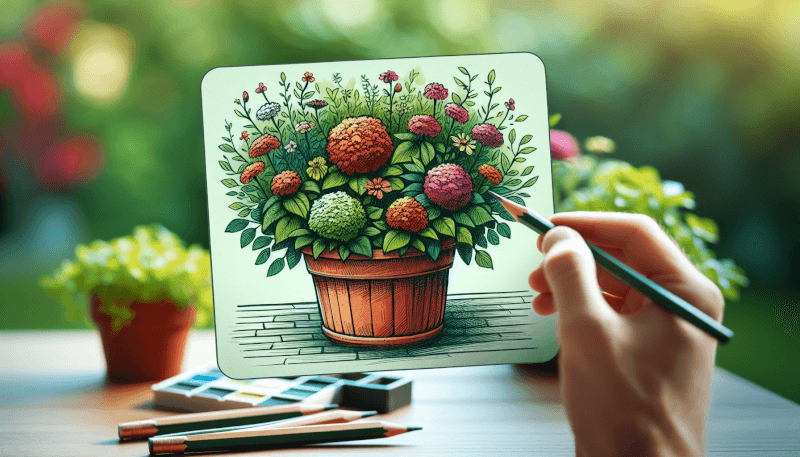Are you looking to spruce up your garden without breaking the bank? Look no further! In this article, we will explore a variety of do-it-yourself garden landscaping ideas that are not only budget-friendly but also guaranteed to transform your outdoor space into a picturesque oasis. Discover easy and creative ways to add character and beauty to your garden using simple materials and tools that won’t cost you a fortune. Get ready to unleash your inner green thumb and create a stunning garden that will impress your friends and neighbors, all while staying within your budget.

1. Repurposing and Upcycling
1.1 Using old pallets and crates
Repurposing old pallets and crates is a fantastic way to add a touch of creativity and sustainability to your garden landscape. These versatile materials can be transformed into various garden elements, such as raised beds, vertical planters, and even furniture. With some basic tools and a little bit of effort, you can easily turn discarded pallets and crates into functional and aesthetically pleasing additions to your garden.
1.2 Creating vertical gardens with old ladders
If you have an old ladder lying around, don’t let it go to waste! Instead, repurpose it into a unique vertical garden. Use the rungs of the ladder as shelves to hold potted plants or hang planters from the ladder’s sturdy frame. This not only maximizes your garden space but also creates a stunning visual display. Whether you have a small balcony or a spacious backyard, vertical gardens created from old ladders are a charming and practical solution.
1.3 Making planters from old tires
Old tires are a common sight in landfills, but they can actually be transformed into eye-catching planters for your garden. To create a planter from an old tire, paint it with vibrant colors and fill it with soil. You can either plant flowers directly into the tire or use it as a base for a larger planter. This upcycling project not only adds a unique element to your garden but also helps reduce waste in an eco-friendly way.
2. Creative Planting Ideas
2.1 Using herbs for edible landscaping
Incorporating herbs into your garden not only adds natural beauty but also gives you the opportunity to create a functional and edible landscape. Planting herbs such as basil, thyme, rosemary, and mint allows you to have fresh ingredients at your fingertips for culinary purposes. Additionally, the aroma of these herbs can enhance the overall ambiance of your garden, creating a sensory experience for both you and your guests.
2.2 Creating a flower bed from recycled materials
Instead of spending money on expensive flower bed borders or planters, why not repurpose some materials you already have? Old wooden pallets, bricks, or stones can be used to create a charming flower bed border. Simply arrange them in a desired shape and fill the space with soil and your favorite flowers. This budget-friendly idea not only adds visual interest to your garden but also reduces waste by incorporating recycled materials.
2.3 Planting a colorful succulent garden
Succulents are a popular choice for gardeners due to their low maintenance nature and unique appearance. These water-retaining plants come in a wide range of vibrant colors, making them a perfect choice for adding pops of color to your garden. Create a stunning succulent garden by mixing different varieties and arranging them in planters, hanging baskets, or even old containers. This cost-effective option allows you to enjoy the beauty of succulents without breaking the bank.

3. DIY Pathways and Walkways
3.1 Making a gravel pathway
Gravel pathways are not only cost-effective but also add a charming rustic touch to your garden. Start by marking out the desired path and removing any existing grass or debris. Lay a weed barrier fabric to prevent weed growth and then spread a layer of gravel evenly along the path. Use a rake or shovel to smooth out the surface, ensuring it is level and compacted. A gravel pathway not only provides easy access through your garden but also adds an inviting and natural element to your outdoor space.
3.2 Creating a stepping stone path
Stepping stone paths are not only functional but also offer a unique design element to your garden landscape. Choose flat stones or concrete pavers of various shapes and sizes and lay them out in your desired pattern. Dig shallow holes for each stone and place them securely in the ground, ensuring they are level and evenly spaced. Fill the gaps between the stones with soil or gravel, and voila! You have a beautiful and budget-friendly pathway that adds both structure and charm to your garden.
3.3 Designing a mosaic pathway
If you’re feeling particularly creative and want to add a personal touch to your garden, consider designing a mosaic pathway. Gather broken tiles, glass, or ceramic pieces in various colors and shapes. Dig a shallow trench for your pathway and lay a concrete base. Arrange your chosen materials in an artistic pattern, pressing them firmly into the concrete. Once the concrete has dried, fill in any gaps with grout and give the mosaic pathway a thorough cleaning. This unique and visually stunning pathway will be a true statement piece in your garden.
4. Low-Cost Garden Borders
4.1 Using rocks or stones as borders
Adding borders to your garden beds not only helps define the space but also adds a polished and organized look. Instead of buying expensive border materials, consider using rocks or stones that you can find in your own backyard or nearby natural areas. Place the rocks or stones along the edge of your garden bed, burying them partially in the soil for stability. This simple and cost-effective border idea adds a natural and rustic charm to your garden landscape.
4.2 Building a fence with repurposed materials
If you’re looking to create a boundary or privacy screen for your garden, you don’t need to spend a fortune on new fencing materials. Instead, repurpose old materials like pallets, wooden crates, or even discarded doors and windows. With some basic carpentry skills and a little creativity, you can build a unique and budget-friendly fence that adds character and functionality to your garden. Not only do repurposed fences save you money, but they also give a new life to materials that would otherwise end up in the landfill.
4.3 Creating a border with recycled glass bottles
Don’t throw away those empty glass bottles! Instead, turn them into a stunning garden border. Collect bottles of different colors and shapes, remove the labels, and dig a narrow trench along the edge of your garden bed. Gently bury the bottles neck down in the trench, creating a colorful and whimsical border. This eco-friendly idea not only adds a touch of artistic flair to your garden but also reduces waste by giving new purpose to old bottles.

5. DIY Garden Furniture
5.1 Building a garden bench from wooden pallets
If you’re in need of some seating in your garden, why not build your own garden bench using wooden pallets? Pallets are versatile and readily available, making them an ideal choice for DIY projects. Disassemble the pallets, remove any protruding nails, and sand down the rough edges. Then, assemble the pallet pieces into a bench shape, using screws for stability. You can leave the wood as-is for a rustic look or paint it to match your garden’s color scheme. This budget-friendly and customizable furniture piece provides a cozy place to relax and enjoy your outdoor space.
5.2 Creating a cozy outdoor seating area with old tires
Old tires can be repurposed into unique and comfortable seating for your garden. Start by cleaning the tires thoroughly and painting them with weather-resistant paint in your desired color. Stack multiple tires on top of each other, securing them with strong adhesive or screws. Finally, top the tire stack with a cushion or seat pad for added comfort. This DIY seating option not only adds a fun and playful element to your garden but also gives new life to discarded tires.
5.3 Making a swing from a wooden pallet
A swing adds a nostalgic and whimsical touch to any garden, and you can easily make one using a wooden pallet. Start by removing any protruding nails and sanding down the pallet for a smooth finish. Attach strong ropes or chains to the top corners of the pallet, making sure they are securely fastened. Hang the swing from a sturdy tree branch or a dedicated swing set frame. This budget-friendly and DIY swing will provide hours of fun and relaxation for both children and adults alike.
6. Water Features on a Budget
6.1 Building a simple bird bath
Bird baths are a great way to attract wildlife to your garden while adding a decorative element to your outdoor space. Building a simple bird bath is easy and budget-friendly. Start by selecting a shallow basin or dish to use as the base. This could be a repurposed saucer, a large flower pot tray, or even a shallow bowl. Find a sturdy pedestal or stand to elevate the basin and secure it in place. Finally, fill the basin with water and watch as birds flock to enjoy a refreshing bath in your garden sanctuary.
6.2 Creating a mini garden pond
A mini garden pond can create a calming and serene atmosphere in your outdoor space, and it doesn’t have to break the bank. Start by selecting a container or basin that can hold water, such as a large ceramic pot or a repurposed tub. Dig a hole slightly larger than the container and place it in the ground, ensuring it is level. Decorate the edges of the container with rocks or small plants to blend it seamlessly with your garden. Fill the container with water and add aquatic plants or even a small fountain for added beauty and tranquility.
6.3 Making a DIY water fountain
The soothing sound of running water can create a relaxing ambiance in your garden. With some creativity and basic materials, you can easily make a budget-friendly DIY water fountain. You can repurpose various containers or bowls to create tiers, or even stack different-sized pots on top of each other. Install a small water pump in the base container, connect it to a power source, and watch as water cascades down from each tier. This simple yet elegant water feature will transform your garden into a peaceful oasis.

7. Lighting Ideas for the Garden
7.1 Using solar-powered garden lights
Lighting plays a crucial role in creating a warm and inviting atmosphere in your garden, and solar-powered garden lights are an excellent choice for both functionality and energy efficiency. These lights harness the power of the sun during the day and automatically illuminate your garden at night. Place them along pathways, around garden beds, or even in trees to create a magical glow. Solar-powered garden lights not only add beauty and ambiance but also save you money on electricity bills.
7.2 Creating DIY lanterns from Mason jars
Mason jars are versatile and can be repurposed into charming lanterns for your garden. Clean and dry empty jars, and insert a small candle or a solar-powered light inside each one. Attach wire or twine around the neck of the jar, creating a handle for hanging. Hang the lanterns from tree branches, pergolas, or stakes placed strategically around your garden. The soft glow of the candle or solar light will create a cozy and enchanting atmosphere in your outdoor space.
7.3 Installing fairy lights in the trees
Fairy lights have a magical quality that instantly transforms any garden into an ethereal wonderland. Install fairy lights in the trees throughout your garden to create a mesmerizing and whimsical effect. Use a ladder or a secure platform to reach the tree branches, and drape the lights in a zigzag pattern, allowing them to gently cascade down. Plug the lights into a power source or use solar-powered options for an eco-friendly lighting solution. The twinkling fairy lights will add a touch of enchantment and create a captivating ambiance in your garden.
8. Attractive Garden Edging
8.1 Using recycled bricks for a rustic look
Recycled bricks provide a classic and timeless look to garden edging. Visit salvage yards or construction sites to source old bricks at a fraction of the cost of new ones. Lay the bricks along the edge of your garden bed, burying them partially in the soil for stability. Be creative with your brick placement, experimenting with different patterns and arrangements. This simple and cost-effective garden edging solution gives your outdoor space a rustic and charming aesthetic.
8.2 Creating a border with decorative pebbles
Decorative pebbles can be an affordable and visually appealing alternative to traditional garden edging materials. Choose pebbles in various colors and sizes that complement your garden design. Dig a shallow trench along the edge of your garden bed and fill it with the pebbles, pressing them firmly into the soil. Not only does this create a neat border, but it also adds texture and interest to your garden landscape.
8.3 Installing metal edging for a modern touch
For a sleek and modern look, consider installing metal edging along the borders of your garden beds. Metal edging is not only durable but also provides a clean and polished finish to your outdoor space. Choose from various metals such as aluminum or stainless steel. Dig a trench along the edge of your garden bed and insert the metal edging, ensuring it is level and securely in place. This contemporary garden edging option adds a touch of elegance and sophistication to your garden.

9. Space-Saving Techniques
9.1 Vertical gardening with pallets or hanging baskets
If you have limited garden space, vertical gardening is a fantastic solution. Utilize old wooden pallets or hanging baskets to create vertical planters that maximize your growing area. Attach sturdy hooks or brackets to a wall, fence, or pergola, and hang the pallet or baskets securely in place. Fill them with soil and plant your favorite flowers, herbs, or trailing vines. Vertical gardening not only saves valuable ground space but also adds a visually interesting and lush display to your garden.
9.2 Tiered planters for maximizing space
Tiered planters are another space-saving technique that adds depth and dimension to your garden. You can create tiered planters using various materials such as wooden crates, terracotta pots, or even repurposed shelving units. Arrange the containers in a tiered fashion, ensuring each level has adequate space for the plants to grow. Fill them with nutrient-rich soil and plant a variety of flowers, herbs, or vegetables. Tiered planters not only provide ample room for your plants but also create an eye-catching focal point in your garden.
9.3 Using trellises and arbors for vertical growth
Trellises and arbors not only create vertical interest in your garden but also provide support for climbing plants and vines. You can either purchase pre-made trellises and arbors or make your own using wooden or metal materials. Install them along fences, walls, or as standalone structures, allowing your plants to climb and flourish. This vertical growth technique maximizes your garden space and adds a beautiful and enchanting element to your outdoor oasis.
10. Eco-Friendly Practices
10.1 Composting for organic fertilizer
Composting is a simple yet effective way to create nutrient-rich soil for your garden while reducing waste. Collect kitchen scraps, such as fruit and vegetable peelings, coffee grounds, and eggshells, and add them to a compost bin or pile. Layer the organic material with dry leaves, grass clippings, or shredded newspaper to maintain a balanced ratio of carbon and nitrogen. Over time, the organic matter will decompose, creating nutrient-rich compost that can be incorporated into your garden beds. Composting not only benefits your plants but also reduces the amount of waste sent to landfills, making it a sustainable and eco-friendly practice.
10.2 Collecting rainwater for watering plants
Water is a precious resource, so conserving it in your garden is eco-friendly and cost-effective. Install rain barrels or create a collection system to capture rainwater from your roof. Use this collected water to irrigate your plants, reducing your reliance on municipal water supplies. Rainwater is free of chemicals, making it an ideal choice for watering your garden. By collecting and repurposing rainwater, you are not only conserving water but also nurturing your plants with a natural and eco-friendly alternative.
10.3 Using natural pest control methods
Maintaining a healthy garden ecosystem is essential for sustainable and eco-friendly practices. Instead of relying on harmful chemicals to control pests, consider using natural methods that are safe for both your plants and the environment. Encourage beneficial insects by planting flowers that attract pollinators, such as butterflies and bees. Use companion planting techniques to repel pests, such as planting marigolds to deter aphids or basil to keep mosquitoes at bay. Additionally, handpick pests or spray them with soapy water to limit their population. These natural pest control methods promote a balanced and thriving garden while minimizing your ecological footprint.
In conclusion, DIY garden landscaping on a budget is not only financially rewarding but also allows you to express your creativity and reduce waste. By repurposing and upcycling materials, such as old pallets, ladders, and tires, you can transform your garden into a unique and sustainable outdoor sanctuary. Embrace creative planting ideas, such as edible landscaping with herbs, and incorporate recycled materials for flower beds. Explore low-cost garden borders, DIY garden furniture, and consider adding water features and lighting to enhance the ambiance. Implement space-saving techniques to optimize your garden area and adopt eco-friendly practices like composting, rainwater collection, and natural pest control. With these ideas in mind, you can create a beautiful and environmentally friendly garden without breaking the bank. Happy gardening!


